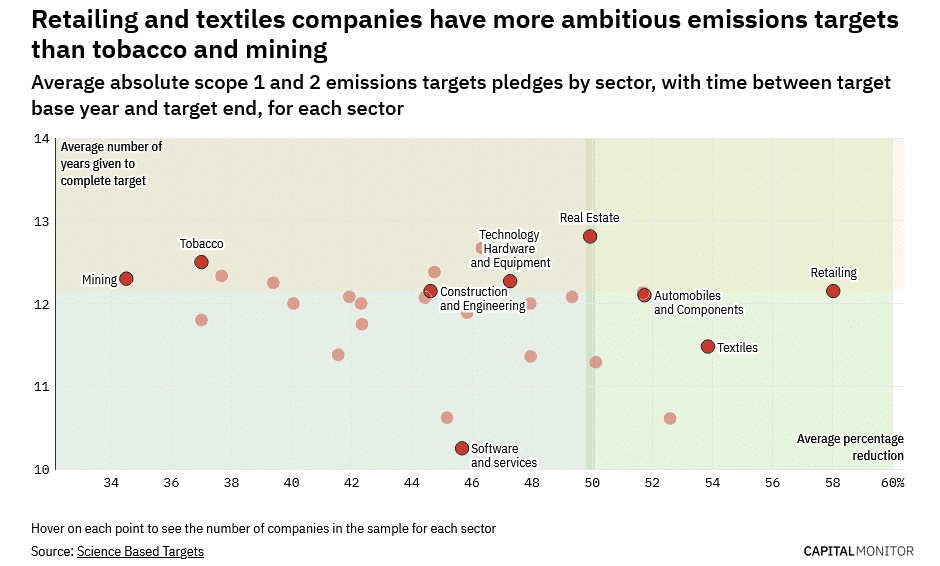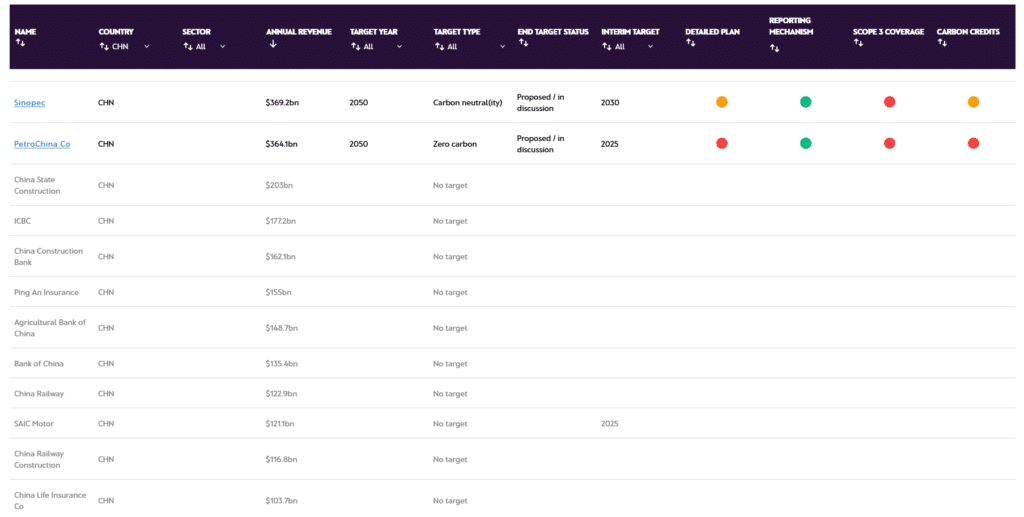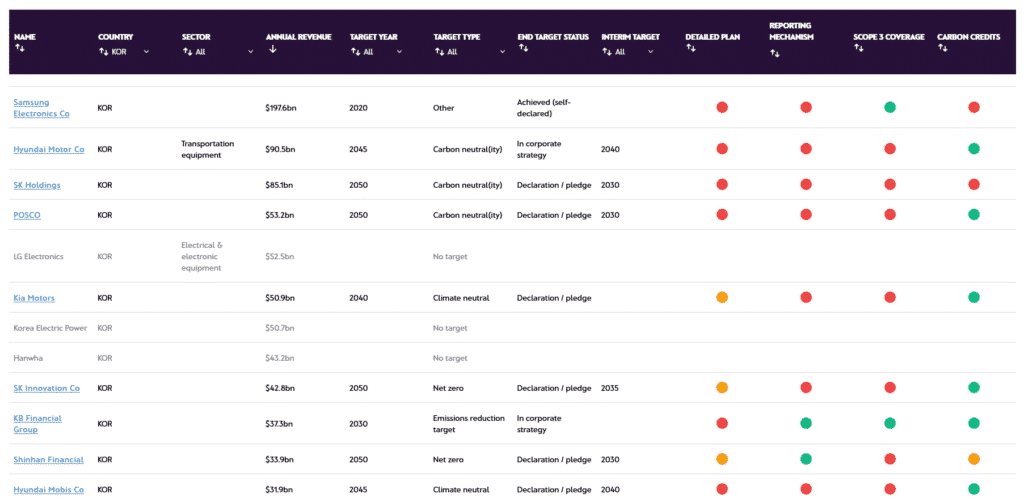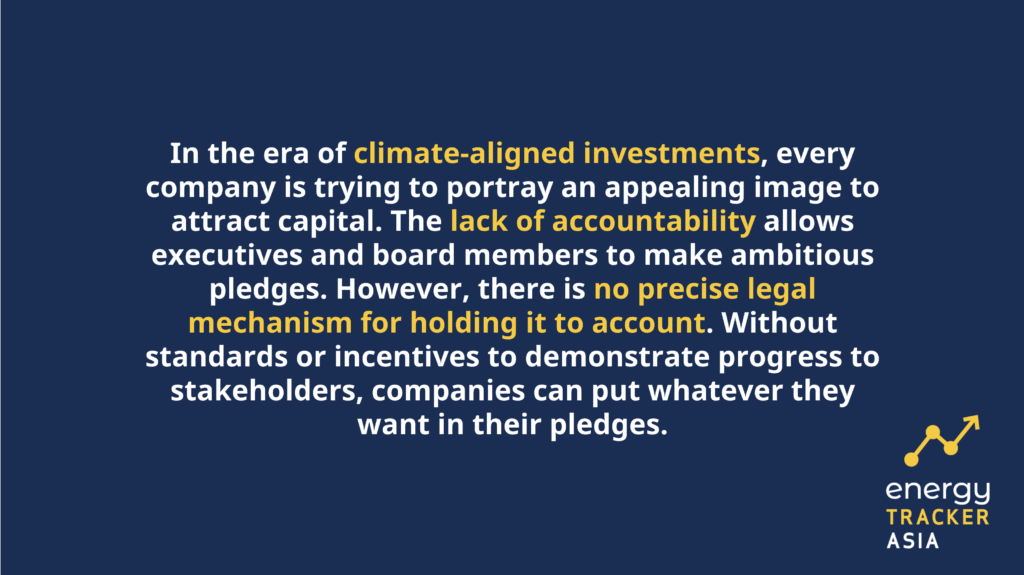Net-Zero Accountability and Its Critical Importance for Our Future
04 April 2022 – by Viktor Tachev
In an era of greenwashing, companies around the world are making all sorts of pledges to ensure that they end up on the right side of the climate change debate. In stark contrast to the past – when the world was struggling with the lack of commitment to climate action – we are now faced with tackling the lack of net-zero accountability. Whether it be a pledge to go net-zero in the next decade, reduce Scope 3 emissions or support climate-related activities, these promises remain only on paper. However, what the world needs the most is not more commitment but more accountability to take key emissions reduction measures to achieve the greenhouse gas emissions target. For achieving net-zero emissions, devising a solid emissions reduction plan and acting on this plan is necessary.
The Net-Zero Pledges of Global Companies regarding Net-Zero Emissions
As of December 2021, 622 of the 2,000 largest public companies globally have adopted net-zero strategies. The team behind the findings, which operates the website Net Zero Tracker, concluded that many of the adopted net-zero policies and emissions reduction strategies are insufficient and fall short of achieving their zero-carbon operational goals. The reasons are mostly related to the failure to monitor supply chain emissions and the reliance on unproven carbon offsetting strategies.
After analysing the 2,000 largest companies by revenue, a report from Capital Monitor came to similar conclusions. It found that only 20% of the pledges made aligned with science-based targets.
Meanwhile, the retail sector has one of the most ambitious average net-zero targets and emissions reduction plans. The industry plans to cut absolute emissions by around 58% by 2029, just 12.2 years after setting the target.
While more and more institutions are making net-zero pledges in the financial industry, it remains mostly unclear exactly how their portfolios will match those targets.

The Net-Zero Pledges of Asian Companies
The investor-led initiative Climate Action 100+ has selected 166 focus companies. They account for up to 80% of corporate industrial greenhouse gas emissions. Investors supporting the initiative are currently engaging with 34 Asian companies to move towards net-zero emissions by 2050 or earlier. Included are fossil fuel heavy weights like SinoPec, the China National Offshore Oil Corporation and PetroChina. Additionally, close to 40% of the 225 companies in Japan’s Nikkei Stock Average now have carbon neutrality goals.
While these figures might seem promising, whether or not these companies can achieve their goals is another issue. In that sense, Greenpeace’s Race to Green report, which examines 30 tech giants across Asia, paints a worrying picture. In its analysis, the report finds that most companies are struggling to achieve their targets.
Net Zero Tracker’s database is also lacking when it comes to finding companies that are following through with their pledges. Although there are some exceptions, most organisations lack detailed plans and key measures on achieving their net-zero promises. Many also do not report their Scope 3 emissions.


If companies do not adhere to their goals, they will suffer increased reputational and financial risks. Shareholder pressure and the rise of the ESG-conscious investor will limit the access to capital for companies without actionable net-zero plans. Furthermore, these companies risk becoming a target for greenwashing accusations, which is massive reputational damage.
While governments are responsible for setting policies, companies are responsible for translating them into real-world action. They should embrace the opportunity to make a difference, as market forces tend to reward climate-resilient companies with higher valuations. Meanwhile, robust climate reporting can help businesses benefit from incorporating climate policies into capital allocation decisions. On the contrary, there will be negative consequences for companies that fail to adjust quickly enough.
Why Net-Zero Accountability Matters?
Speaking to Time, Thomas Hale, an Oxford University professor and contributor to Net Zero Tracker, says that many companies set these targets simply for PR reasons.
Today, if a company misses an emissions reduction target, there is no precise legal mechanism for holding it to account. Without standards or incentives to demonstrate progress to stakeholders, companies can put whatever they want in their pledges.
In the era of climate-aligned investments, every company is trying to portray an appealing image to attract capital. The lack of accountability allows executives and board members to make ambitious pledges even if they may be too ambitious. Today, every company setting a target wants their pledges to look and sound as pleasing and as ambitious as possible.
Without net-zero accountability, the pledges will continue to serve as a powerful PR and marketing tool that empowers greenwashing practices. Studies have found that just 5% of global companies are entirely free of greenwashing practices.
Estimations project that if companies meet all their current net-zero pledges, the world would have a real chance to keep global warming to 1.8°C by 2100. While still not in line with the 1.5°C target under the Paris Agreement, it is a much more desirable scenario than the 2.4° by 2050 prediction that the IPCC sees us moving towards.
However, companies must live up to their commitments for this to happen. And so far, this has not been the case.
Possible Key Cooperative Measures to Promote Net-Zero Accountability
Currently, the lack of legal obligation forcing companies to honour their pledges allows them to make whatever net-zero commitments they like. By creating standards and tracking pledges, voluntary frameworks, like Science-Based Targets and net-zero advisory body, and programmes involving academic and climate-advocacy groups, like Net Zero Tracker, Science-Based Targets Initiative and NewClimate Institute, are filling the gap left by the lack of adequate policy measures. However, they can not enforce accountability.
Net-zero accountability can and should come in various forms. It should be embedded into local and global regulatory frameworks where pledges officially become legally binding. Furthermore, unification and consistency in applied standards are needed to overcome net-zero’s design and implementation limitations. Accountability should also be further strengthened through shareholder activism and peer pressure on industrial and societal levels.
The inherent goal of such a combined approach would be to force companies to remain true to their word.
Companies will continue to participate in greenwashing as long as net-zero accountability does not become an integral requirement for global business. This practice continues to harm accountability.
Net-Zero Accountability – the Key to Our Sustainable Future
During COP26, UN Secretary-General António Guterres urged governments, non-state actors and civil society to “hold each other accountable.” Unfortunately, collective accountability can be efficient only when enforced and not voluntary. In this race against the clock, trusting in companies’ goodwill and self-awareness may not be the most viable strategy.
In the months ahead, Guterres will appoint an expert panel to craft clear standards for measuring and analysing climate commitments from corporations, cities and states. These standards will hopefully hold these organisations to account. Without real accountability, corporate pledges will continue to be merely lip service. This will, ultimately, result in a lack of consequences for those who fail to keep their promises.

Correction: previously, this article referred to 34 Asian countries pledging to become carbon neutral in collaboration with an investor-led initiative, Climate Action 100+. This list was 34 Asian companies focused on and not a list of countries pleading carbon neutrality. Changes to the text to reflect this have been made.
by Viktor Tachev
Viktor has years of experience in financial markets and energy finance, working as a marketing consultant and content creator for leading institutions, NGOs, and tech startups. He is a regular contributor to knowledge hubs and magazines, tackling the latest trends in sustainability and green energy.
Read more



